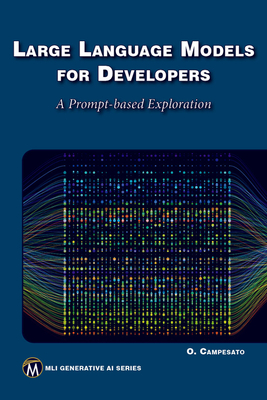Large Language Models for Developers: A Prompt-Based Exploration of Llms

Large Language Models for Developers: A Prompt-Based Exploration of Llms
FEATURES
- Covers the full lifecycle of working with LLMs, from model selection to deployment
- Includes code samples using practical Python code for implementing prompt engineering, fine-tuning, and quantization
- Teaches readers to enhance model efficiency with advanced optimization techniques
- Includes companion files with code and images -- available from the publisher
PRP: 402.94 Lei
Acesta este Prețul Recomandat de Producător. Prețul de vânzare al produsului este afișat mai jos.
362.65Lei
362.65Lei
402.94 LeiLivrare in 2-4 saptamani
Descrierea produsului
FEATURES
- Covers the full lifecycle of working with LLMs, from model selection to deployment
- Includes code samples using practical Python code for implementing prompt engineering, fine-tuning, and quantization
- Teaches readers to enhance model efficiency with advanced optimization techniques
- Includes companion files with code and images -- available from the publisher
Detaliile produsului










